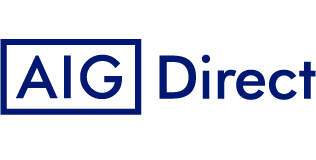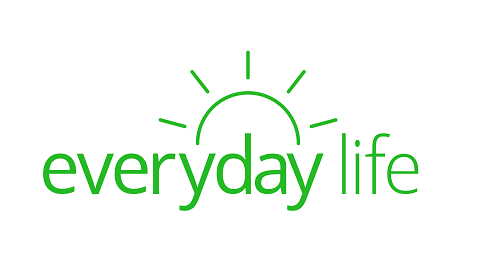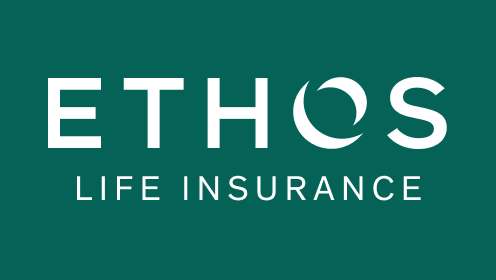Life insurance should be part of your financial plan, especially if you have loved ones who rely on you financially. While term life insurance covers you for a certain number of years, such as 10 or 30 years, some people may find a permanent life insurance policy like universal life insurance has more advantages for their long-term financial goals.
Learn more about how universal life insurance works and how it compares to the other types of life insurance.
What is universal life insurance and how does it work?
Universal life insurance is a type of permanent coverage. Unlike term life insurance, a universal life policy doesn’t expire. You’re covered as long as you’re alive and pay your premiums. All permanent life insurance policies come with two main parts:
- The death benefit
- The cash value
The death benefit amount is the cash payout that your beneficiaries receive tax-free after you pass away. The cash value portion is yours and you can access it during your lifetime as you need.
Universal life insurance policies are one of the most popular types. A 2020 LIMRA study found that universal life finished a close second in life insurance policy market share.
Catherine Theroux of LIMRA said consumers shopping for life insurance like the combination of investing and a guaranteed death benefit.
Types of universal life insurance
Every universal life premium payment goes toward fees, the death benefit and the cash value. The cash fund grows over time, much as a savings account grows if you regularly deposit funds into it.
The amount of the premiums that goes to the cash value depends on the type of universal life insurance. Your cash fund’s growth potential also depends on the type of universal life insurance.
The universal life subcategories are:
- Fixed or guaranteed universal life: This has the lowest risk. The bulk of your premium goes to ensuring the death benefit. A minimal amount of your payment goes to the cash value fund, which earns “a money market rate of interest,” according to the Insurance Information Institute.
- Index universal life: Medium in risk, you have the opportunity to contribute more to the cash value. Your cash grows based on the performance of one of the stock market indexes, such as the S&P 500 or Nasdaq. Your balance could drop and increase based on stock market volatility, although most IUL policies have a guaranteed minimum and maximum return rate.
- Variable universal life: The riskiest to your cash value, you can choose to invest in mutual funds that own multiple stocks.
Universal life insurance flexibility
One main advantage of a universal life insurance policy is the flexibility to adjust the death benefit amount and the frequency of your payments. You don’t have to make a payment every month.
You may opt to:
- Make quarterly payments
- Increase contributions to grow cash value faster
- Pay less in premiums to reduce the amount of your death benefit or cash fund
- Apply part of the cash value to pay your premiums
Who is universal life insurance best for?
Universal life insurance policies work best for people with large cash reserves and those who are already investing.
Here’s who may most benefit from a universal life policy:
- Individuals with more cash reserves: They may have a higher net worth and need an additional investment option in their financial plan. Such a person may have maxed out their IRAs and 401(k)s and would like to invest additional money in a tax-deferred way.
- People comfortable with investing: If you’re already comfortable investing in stocks and mutual funds, the idea of inflation outpacing your cash reserves may keep you up at night. UL insurance lets you invest your cash value in more volatile index funds for greater growth.
- Followers of the Infinite Banking Concept: With Infinite Banking, you become your own lender. You can grow the universal life insurance policy’s cash value and borrow the funds, choosing whether to pay yourself interest as you pay the loan back. Imagine taking a $150,000 loan from your UL’s cash account to buy a house instead of borrowing from a bank. You’ll cut out the lender, saving time and money on applications and mortgage interest/fees.
- Younger individuals with significant medical conditions: Certain genetic or medical conditions will make it more difficult to obtain life insurance in the adult years if the condition develops or worsens with age. Vanessa Coffeen of Farmers Insurance recommends “buying UL insurance for a child or young adult to guarantee they have coverage for a lifetime in the years when premiums are cheaper.”
What is the difference between whole life insurance and universal life insurance?
Whole life and universal life are both permanent policies and come with a death benefit and cash value. But whole life insurance is much simpler and premiums are fixed, so you know what to expect. As for the cash value portion, a whole life policy earns a small amount of interest.
When comparing whole life vs. universal life, whole life is like putting money in a savings account and universal life is like investing your money.
| Policy benefit | Whole life | Universal life |
|---|---|---|
| Permanent coverage | Yes | Yes |
| Premiums | Fixed | Flexible |
| Death benefit | Fixed/guaranteed | Flexible/adjustable |
| Cash value | Nominal interest rate | Based on chosen investment type |
| Risk of cash value | None | May come with risk |
| Tax-deferred growth of cash value? | Yes | Yes |
Advantages and disadvantages of universal life insurance
Universal life insurance has its pros, but there are also drawbacks. The main universal life insurance pros and cons are:
Pros:
- Guaranteed for life as long as you pay your premiums
- Premium payment flexibility
- You can increase or decrease your death benefit amount without losing coverage, although you may have to pass a new medical exam if you want to significantly increase the death benefit
- You can adjust how much you’d like to contribute to the cash value fund
- The cash value amount has the potential to earn more than minimal interest if you choose indexed universal life
- Cash value grows tax-deferred
- You can borrow or make withdrawals throughout your lifetime from your cash value account
Cons:
- More complex to understand and manage
- The cash balance can fluctuate in value depending on market performance
- Your growth is capped, even if the market is doing well
- Fixed UL premiums may vary based on interest rates
- If you overdraw your cash value, it can decrease the death benefit amount
- Gains on your investment will be taxed on withdrawals
Is universal life insurance a good investment?
The main purpose of life insurance is to provide a death benefit to loved ones. Universal life insurance is a better investment than term and whole life because the cash value balance can earn more, but it shouldn’t replace other traditional forms of investments, such as retirement accounts.
Universal insurance comes with fees that eat up part of your premium contribution. And even if you’re investing in an index fund, your growth is capped, regardless of market performance.










